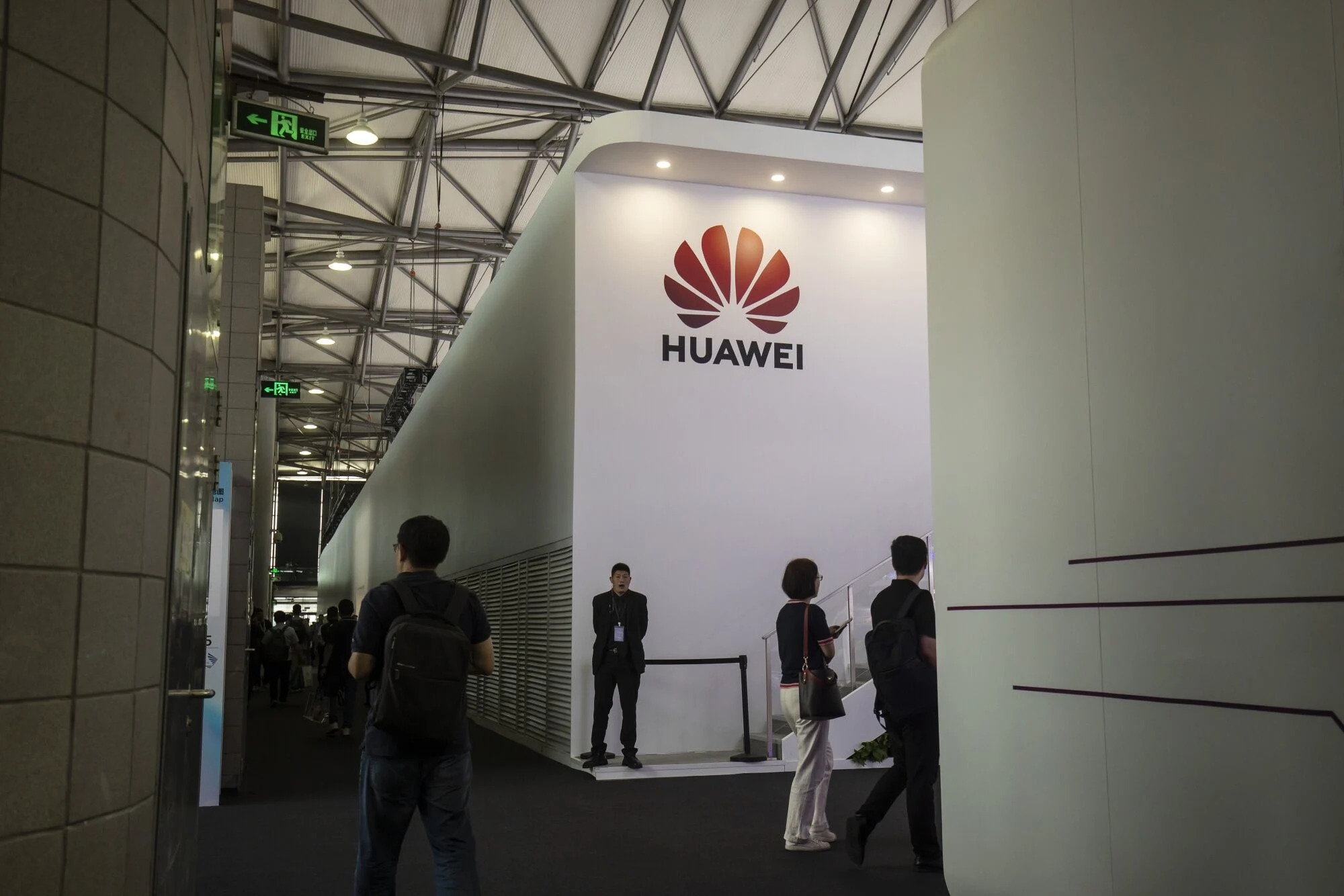Huawei Technologies Co. and its partner Semiconductor Manufacturing International Corp. relied on US technology to produce an advanced chip in China last year, according to people with knowledge of the matter.
Shanghai-based SMIC used gear from California-based Applied Materials Inc. and Lam Research Corp. to manufacture an advanced 7-nanometer chip for Huawei in 2023, the people said, asking not to be named as the details are not public.
The previously unreported information suggests that China still cannot entirely replace certain foreign components and equipment required for cutting-edge products like semiconductors. The country has made technological self-sufficiency a national priority and Huawei’s efforts to advance domestic chip design and manufacturing have received the backing of Beijing.
Representatives of SMIC, Huawei and Lam did not respond to requests for comment. Applied Materials and the US Commerce Department’s Bureau of Industry and Security, which is responsible for implementing export controls, declined to comment.
Lauded in China as a major leap in indigenous semiconductor fabrication, last year’s SMIC-made processor powered Huawei’s Mate 60 Pro and a wave of patriotic smartphone-buying in the Asian country. The chip is still generations behind the top components from global firms, but ahead of where the US hoped to stop China’s advance.
The machinery used to make it, however, still had foreign sources including technology from Dutch maker ASML Holding NV as well as the gear from Lam and Applied Materials. Bloomberg News reported in October that SMIC had used equipment from ASML for the chip breakthrough.
Leading Chinese chip equipment suppliers including Advanced Micro-Fabrication Equipment Inc. and Naura Technology Group Co. have been trying to catch up with their American peers, but their offerings are still not as comprehensive or sophisticated. China’s top lithography system developer Shanghai Micro Electronics Equipment Group Co. still lags a few generations behind what industry leader ASML is capable of.
SMIC obtained the American machinery before the US banned such sales to China in October 2022, some of the people said. Both firms were among the American suppliers that began pulling their staff from China after those rules went into effect and prohibited US engineers from servicing some machines in the Asian country. ASML also told American employees to stop working with Chinese customers in response to the US curbs, but Dutch and Japanese engineers are still able to service many machines in China — much to the chagrin of their American rivals.
Companies are now prohibited from selling cutting-edge, US-origin technology to either SMIC or Shenzhen-based Huawei. Both tech firms have been blacklisted by the US for alleged links to the Chinese military, while Washington has been tightening China’s overall access to chipmaking equipment and advanced semiconductors.
Those trade curbs pushed Huawei and SMIC to pursue avenues for building a domestic chip supply chain, and the Mate 60 Pro marked a surprising advance in that effort.
Read More: China Secretly Transforms Huawei Into Most Powerful Chip War Weapon
After Huawei released the new phone, Washington launched a probe into its processor and US Commerce Secretary Gina Raimondo vowed the “strongest possible” actions to ensure national security. Meanwhile, Republican lawmakers have called for the Biden administration to completely cut off Huawei and SMIC’s access to US technology.
Department of Commerce officials have said they haven’t seen evidence that SMIC can make the 7nm chips “at scale,” a point echoed by ASML’s Chief Executive Officer Peter Wennink.
If SMIC wants to advance its technology without ASML’s state-of-the-art extreme ultraviolet lithography systems, the Chinese chipmaker will not be able to produce chips at a commercially meaningful volume due to technical challenges, Wennink told Bloomberg News in late January.
“The yield is going to kill you. You’re not going to get the number of chips that you need to have high volume chip production,” he said. ASML has not been able to sell its EUV systems to China as the Dutch government has not issued a license allowing those exports.
The US, meanwhile, is pressing allies including the Netherlands, Germany, South Korea and Japan to further tighten restrictions on China’s access to semiconductor technology. That effort is proving controversial and meeting resistance in some countries, as it imposes limits on trade at a time that Chinese businesses are investing in equipment and computational power to compete in the artificial intelligence race.
Huawei may be China’s most promising candidate to develop AI chips to compete with the US. Industry leader Nvidia Corp.’s CEO, Jensen Huang, in December called the Shenzhen firm a “formidable” rival.
Apple: iPhone China sales slide as Huawei soars, report says
Customers try iPhone 15 at Apple store in Shanghai, China.
Sales in China of Apple's iPhone fell by 24% in the first six weeks of 2024 compared to a year earlier, according to research firm Counterpoint.
It comes as the US technology giant is facing fierce competition in the country from local rivals.
During the same period China's Huawei saw its sales jump by 64% in its home market, the report says.
Apple and Huawei did not immediately respond to requests for comment from the BBC.
Aside from a resurgence of Huawei sales at the more expensive end of the Chinese phone market, Apple was also "squeezed in the middle on aggressive pricing from the likes of Oppo, Vivo and Xiaomi," Counterpoint Research's Mengmeng Zhang wrote.
China, which is one of Apple's biggest markets, also saw overall smartphone sales shrink by 7% in the same period, the report said.
Huawei struggled for years due to US sanctions but its sales surged after releasing its Mate 60 series of 5G smartphones in August.
It came as a major surprise as the Chinese firm was cut off from key chips and technology required for 5G mobile internet.
Honor, which is the smartphone brand spun off from Huawei in 2020, was the only other top-five brand to see sales increase in China during the period, according to the report.
Sales of Vivo, Xiaomi and Oppo also fell in the first six weeks of the year, Counterpoint said.
Its report also said Apple's share of the Chinese smartphone market dropped to 15.7% from 19% last year, putting it in fourth place as it fell from the number two spot.
Meanwhile, Huawei rose to second place as its market share grew to 16.5% from 9.4% a year earlier.
Despite its sales falling by 15% over the last year, Vivo remained China's top-selling smartphone maker, Counterpoint said.
Apple started offering discounts on its official sites in China last month before subsidising certain iPhone models through its flagship stores on Alibaba's marketplace platform Tmall last week.
A slowdown in demand in China could affect Apple's revenue which already disappointed investors when the firm released its earnings last month.
The firm said sales in China were $20.82bn (£16.4bn) in the last three months of 2023, down from $23.9bn in the previous year.
Apple shares fell by 2.8% in New York trade on Tuesday.




